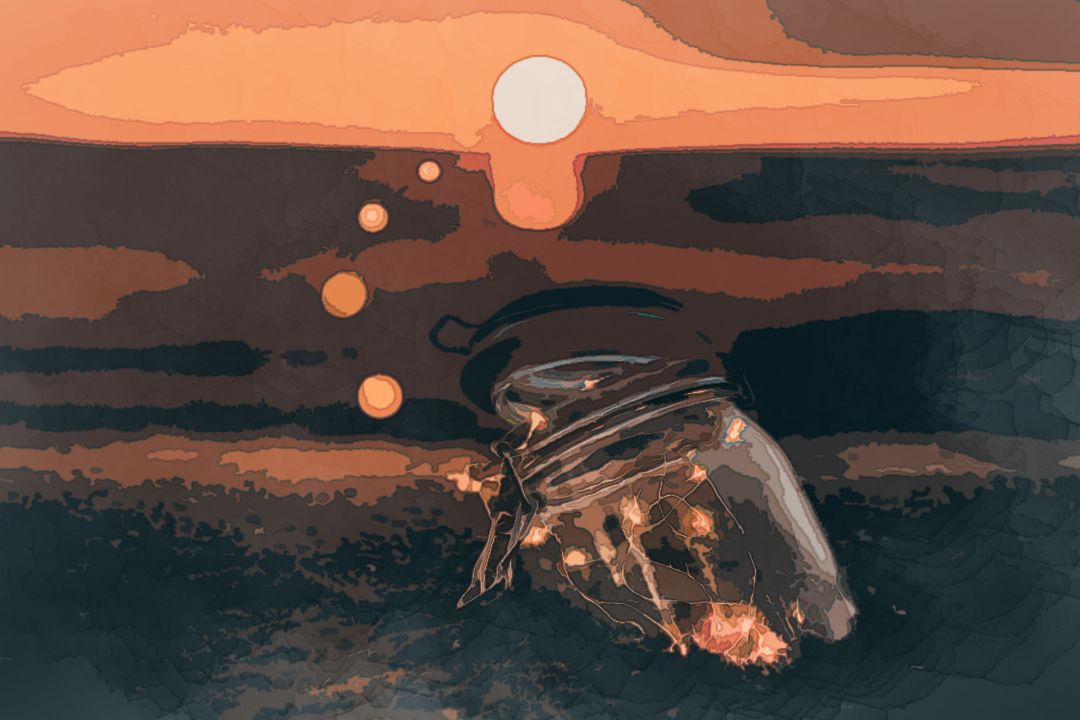On Writing a Book

Thinking in 50 ms Increments by Dr. Cory Elliot
Sophia rested her elbows on the coarse sand, the granules pressing patterns into her skin. She gazed at the jar by her side, half-buried now, a galaxy of tiny lights within fighting to shine brighter than the fading daylight. She had always loved this hour when the sky painted itself in strokes of citrus and berry, but tonight, her thoughts were tumultuous, like the waves whispering secrets to the shore. It was a restless kind of peace. Sophia, an aspiring writer, felt the itch of untold stories beneath her fingertips, stories that swirled in her mind like the clouds above but found no anchor in reality.
If there is a book that you want to read, but it hasn't been written yet, you must be the one to write it.
— Toni Morrison (1931-2019)
Her mind echoed Toni Morrison's words, words that had nudged her towards countless beginnings. Yet she remained on the verge, the precipice of creation, unsure and unsteady. The idea of penning something original seemed as daunting as capturing the essence of the sunset in a jar.
Turning her attention back to the lights, she chuckled at their persistence. They reminded her of her younger self, convinced that adulthood would come with a manual, as clear as the instructions on the back of a microwave dinner. How wrong she had been. It was more like a recipe handed down through generations, measurements vague, steps a mere suggestion. But within that ambiguity lay the art.
Sophia's contemplation was interrupted by a laugh, a sound that seemed to blend seamlessly with the melody of the sea. Alexander was approaching, with his usual stride that made the distance between them feel like a series of comedic tumbles, his feet caught in an invisible slapstick routine. He stopped beside her, shaking sand from his hair, an attempt to maintain the illusion of grace. His light-heartedness was a balm to her pensive mood.
"Trying to bottle the sunset again?" Alexander teased, his voice light but his eyes keen, always looking deeper.
Sophia smirked, "More like trying to bottle a story. It's there, but it doesn't want to be contained."
He plopped down beside her, watching the struggle of light against the coming darkness. "Stories are like those lights, you know. They want to spread, to touch everything. Maybe you're thinking too much inside the jar."
His words, meant to be funny, struck a chord. Sophia turned to him, a smile breaking through her contemplative frown. He was right, in his absurdly whimsical way. Stories weren't meant to be kept in jars or bound by expectations. They were meant to scatter across the sands of imagination, unconfined, free to settle wherever they found resonance.
Alexander's presence, his unintentional wisdom cloaked in humour, was the nudge she needed. With a deep breath, Sophia decided it was time to let the story spill from her mind, like the lights from the jar, uncontrolled and brilliant. And just maybe, she thought, the story that had eluded her would be one that brought laughter and joy, a narrative that didn't take itself too seriously. After all, wasn't life's greatest comedy the idea that we ever had control?
The sun slipped below the horizon, leaving a twilight canvas for the stars to claim. Sophia closed her eyes, imagining her unwritten book as a constellation, each star a word, each constellation a chapter. The idea was whimsical, a child’s method of making sense of the night sky, yet it was exactly what she needed—a way to map out her story without the confinement of lines and expectations.
She described her idea aloud, her voice steady, "Imagine a story that's more like a star map than a straight line. It doesn’t have a clear start or end; it's made of moments that shine independently."
Alexander nodded, his silhouette outlined by the ambient light. "Every star a snippet of humour, a burst of laughter?" he suggested, his tone playful yet encouraging.
"Exactly," Sophia replied, her mind already threading the narrative. "A book that doesn't just sit on a shelf but plays out in the open air, free for interpretation, an anecdote here, a punchline there."
"And the title?" Alexander asked, a grin evident in his voice.
Sophia paused, the jar beside her glowing more prominently as the darkness deepened. "Thinking Outside the Anecdote of the Jar," she declared, her eyes sparkling with mirth.
They laughed together, the sound mingling with the symphony of the evening tide. The title was a parody of seriousness, a nod to the absurdity that often enveloped life's most profound truths. It was perfect, a title that didn’t take itself too seriously, for a book that aimed to do the same.
As night wrapped its cloak around them, Alexander pulled out his phone, the modern world's wand of illumination, and began to jot down Sophia's ideas. He was her scribe, her confidant, the Alexander to her Sophianic musings, a role he wore with a mix of pride and theatrical flair.
They sat for hours, the ocean's rhythm a metronome for their creativity, as they wove tales of cosmic comedy and earthly blunders. The stories poured out with ease, each one a sparkling light, a potential beacon for those who found solace in humour, for readers who sought a narrative that reflected the Möbius strip of life's peculiar journey—a story with no end and no beginning, looping infinitely in a dance of joy and laughter.
As the last light from the jar flickered and surrendered to the night, Sophia realized that the story she had been yearning to read was there all along, living in the space between her dreams and reality, in the laughter shared with a friend, in the courage to write without fear. She would write this book, a constellation of anecdotes, a Möbius strip of humour, and perhaps, it would be the light someone needed on a night like this.
With the waves applauding their resolve, Sophia and Alexander packed away the jar, its purpose fulfilled. It was more than just a vessel for light; it was a metaphor, a reminder of the endless possibilities that lay just beyond the comfort of the glass. They walked back, their footprints a temporary testament to their evening of creation, soon to be washed away, leaving only the memories and the promise of a book that would make readers smile.

The planksip Writers' Cooperative is proud to sponsor an exciting article rewriting competition where you can win over $750,000 in prize money.
Figures of Speech Collection Personified
Our editorial instructions for your contest submission are simple: incorporate the quotes and imagery from the above article into your submission.
What emerges is entirely up to you!
Winners receive $500 per winning entry multiplied by the article's featured quotes. Our largest prize is $8,000 for rewriting the following article;

At planksip, we believe in changing the way people engage; at least, that's the Idea (ἰδέα). By becoming a member of our thought-provoking community, you'll have the chance to win incredible prizes and access our extensive network of media outlets that will amplify your voice as a thought leader. Your membership truly matters!




